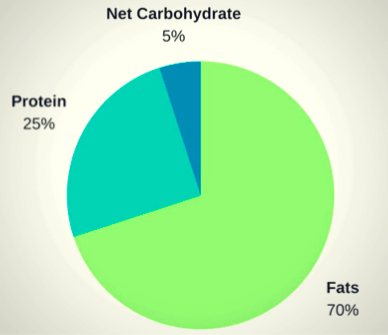I’m sure many of you have heard the buzz words “keto diet” here recently as one of the latest weight loss trends. From Kim Kardashian to Tim Tebo to Katie Couric, many American celebrities are endorsing this style of eating as the latest and greatest.
Despite what some many think, the keto diet is NOT just eating cheese, pork rinds and steak. Trust me, I wish health and weight loss were that simple too.
The “Keto” diet, more formally known as the ketogenic diet, is an extremely high [healthy] fat eating style that rewires the body to use fat as your primary fuel source. Traditionally, we use carbohydrates for fuel and we don’t start burning fat until our carbohydrate stores have been depleted. By eating a diet high in fat and very low in carbohydrates we force the body to start using fat as the preferred fuel source. We when do this, we get into a state of “ketosis”, not to be confused for “ketoacidosis”, a life threatening condition for individuals with diabetes.
For those considering the keto diet, the recommended macronutrient percentages for this style of eating can be seen below:

Keto Diet Pros
- Weight Loss. The keto diet has shown to be a great eating style for those interested in losing weight, even significant amounts of weight. If this is something you personally would like to consider for weight loss, we highly recommend consulting your doctor or a nutrition professional before diving straight in!
- Mental Clarity. When you are eating a diet high in fat and very low in carbohydrates, your body doesn’t produce enough insulin to turn sugar into energy (which is the goal of the keto diet) so therefore your liver turns fat into ketones which your body then uses for energy. Your brain LOVES this form of energy which helps improve mental clarity and focus!
- Disease Treatment. Dr. Dale Bredesen is one of the leading researches regarding the keto diet and its use in helping prevent and even reverse early symptoms of Alzheimer’s. His research is absolutely fascinating and if you know someone with the early onsite of this horrific disease, I would highly recommend Dr. Bredesen’s book, The End of Alzheimer’s. Additional research has also been done on the keto diet and epilepsy and Parkinson’s disease. For more info into that research, check out the work of Dr. David Diamond.
Keto Diet Cons
- Requires Food Tracking. In order to make certain you are eating the correct ratio of fats, protein and carbohydrates, this eat style does require a certain commitment to tracking your food. Apps like MyFitnessPal and Carb Manager do help make this process simpler.
- Keto Flu. At the beginning of this journey, you can imagine your body is very confused. It has probably become very accustomed to using glucose (carbs) as it’s primary source of fuel for many years. Therefore, all of a sudden trying to get it to switch gears can cause a few rocky days at the start, otherwise known as the keto flu. Symptoms may include headaches, irritability, fatigue, body aches etc. but once your body figures out that you are asking it to use fat as fuel, these symptoms subside.
- Serious Carb Restrictions. This style of eating requires serious carb cutting, even the considered “healthy” carbs. Because you want to teach your body to use fat for fuel, you really have to limit your carb intake. This means very little sweet potato, fruit, quinoa, and oats.
As we mentioned, this can be a very effective nutrition tool if you are looking to improve your mental clarity, help reduce your risk of Alzheimer’s or even lose a significant amount of weight, but before you start, please contact your doctor and a nutrition professional to make sure you are a good candidate for this eating style!

